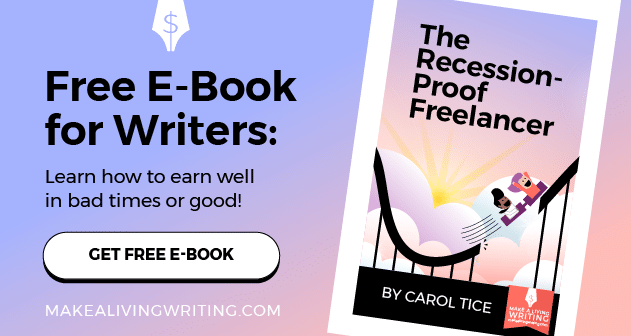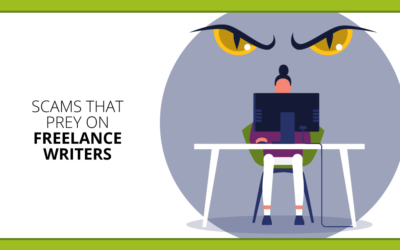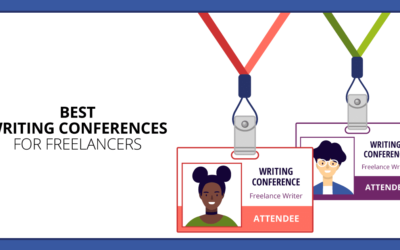Is past trauma making you earn less as a freelance writer? If you have toxic writing clients, but find it super-hard to send that goodbye email to clients and move on, new research may explain why.
Recently, I was sitting in one of my parent-support group meetings. We were learning about the impact of past trauma in our kiddos, and how it may play out in difficult behaviors we see now.
Our facilitator introduced a concept I’d never heard of before. And when I heard it, I sat straight up in my seat.
This idea didn’t just answer questions I had about why my husband’s response to some of our kids’ behaviors was so different from mine.
It solved the mystery of why some writers allow clients to walk all over them, while others of us have no problem setting healthy boundaries. And sending a goodbye email to clients who don’t pay us well, or treat us right.
For years, I ‘d known about fight, flight, and freeze as classic responses to threats. And how people with past trauma may use those responses inappropriately, in situations where they’re not really warranted.
But it turns out there’s one more, newly identified type of trauma response. One that may be messing up your writing business.
Do you avoid conflict in writing jobs?
People who’ve grown up in traumatic home-life situations — there was fighting, domestic abuse, they were molested, yelled at, told they were worthless — tend to want to avoid those scenarios.
It turns out that besides fight-flight-freeze… there’s one more ‘F’ to trauma response.
It’s fawning. And you’ll never send that goodbye email to clients if you do this.
The strategy of appeasement
For fawners, the strategy that succeeded for you when you were enduring childhood trauma was to try to defuse the encounter. You were the peacemaker. You attempted to survive the stressful situation by placating and appeasing the person who is the source of stress, if their actions resonate for you with past traumas.
Or you may have deflected attention onto another family member or friend, in hopes they could take the hit instead of you.
Possibly, this worked fairly well, when you were young. It was a successful strategy.
But when you became a freelance writer, the fawning strategy became a distinct liability. It works out pretty much how appeasement worked for Great Britain in World War II — you avoid immediate conflict (by not sending that goodbye email to clients that need to go), but lay the groundwork for future, possibly even more drastic consequences.
Enter the abusive client
Writers who are trauma survivors (and people-pleasers as a result) tend to attract exploitative or abusive clients, in my experience. The client who’s a yeller, or a gaslighter, or belittles your value.
This client always has a reason why they can’t pay pro rates. They keep you hanging, or want to IM you 24/7. There are no healthy boundaries. Or they’re just plain nasty.
And instead of writing that goodbye email to clients like this and dropping them… you find ways to rationalize it.
The fawn response in action
Like the writer who calmly explained to me why it was OK that her book-ghostwriting agency client was paying her less than one-third the professional rate for her work. While also not getting her needed materials, making the project drag out endlessly. She admitted her hourly rate was working out to less than a typical McDonald’s new hire earns.
When I suggested perhaps it was time for Operation: Goodbye Email to Clients, she said that despite all the problems, she’d feel bad ditching the project and leaving the end client in the lurch (in her view). Such nice people, from a nonprofit that does wonderful work!
I spent a fruitless half hour trying to help her see that she was getting screwed over. But she continually rationalized why it was all right to treat her like dirt.
If you feel more sympathy for your underpaying, abusive client’s situation than for your own empty bank account or sleepless nights, fawning may be a problem for you.
Why you cling to bad clients
If this is resonating for you, I’m sorry to hear. And — let’s tackle this!
It will require changing behavior patterns. I know. It’s hard.
Because what happens in the fawn response is that your mind confuses the needs of your abuser with your own needs. If you experienced trauma, you may struggle to feel you have a right to your own feelings, or to say ‘no’ to anything your client wants.
You stay because the idea of unpleasantness breaking out when you say you’re leaving… it just feels too scary. It’s not worth it. You’ll just keep slogging. And you’ll never send that goodbye email to clients that don’t treat you right.
The first step is to RECOGNIZE that you’re falling back on your old-time fawning strategy, when you encounter exploitative clients. Take notes after first client meetings, and see if you spot any red flags.
4 ways to create healthy boundaries with clients
How can you break this pattern, cut loose abusive or underpaying clients, and attract ones that respect you?
We do attract what we think we deserve. So here’s a quick game plan for changing this dynamic:
- Self care. You deserve to take up space on this planet. If you don’t feel that, it’s time for some self-care. Talk a walk. Call a friend. Spoil yourself with a book, an energy healer — whatever you need. Whatever it is, you deserve it!
- Self-esteem. Low self-esteem is a hallmark of traumatized writers — so commit to engaging in regular activities that build your self-esteem. It might be volunteering to help students write papers (I’ve done it!), for instance. Something that gives you a chance to notice how much you know about writing, that most people don’t. Or just volunteering to feed the hungry, or anything else that does your heart and soul good and helps you see your intrinsic value.
- Support. My experience is that deep-seated behavior patterns don’t get transformed in a vacuum. You need to turn to your writer community, where you will ideally get an accountability buddy you call weekly. Let others lift you up and back you up when you say, “I deserve better.”
- Set boundaries. Once you’ve got these three items in place, you’re ready to set clear boundaries with clients, and enforce them. I’ve found a strong correlation between writers who are people-pleasers and writers who tend to write without a signed contract or (with business clients) an up-front deposit. Stop doing that! The contract spells out the relationship, and gives you an easy way to point out problems and to suggest correctives — or to say they’re in breach, and to terminate. It’s all in writing.
It will take practice. Don’t beat yourself up when you find yourself once again fawning over a client you should have never taken. Today is a new day, and you can give notice anytime.
- Here are tips on how to fire a client in the best possible way, so it feels less scary.
Say farewell to bad clients
It can be a revelation to see how the survival strategies that got you through long-ago trauma are showing up in your career now. If a light bulb went off here, now you understand why taking a professional attitude with clients has been so hard.
Don’t go nuts and fire all your clients at once, especially right now. But you might want to pick a ‘biggest loser’ to ax right away.
Don’t starve — I always found the replacement client before I dropped the loser. You can, too. It’s easier to stand your ground and give an end date to a bad client when you know you’ve already replaced that income.
Can you easily send a goodbye email to clients — or is it hard? Do you connect this to past trauma in your life? Let’s discuss in the comments.










